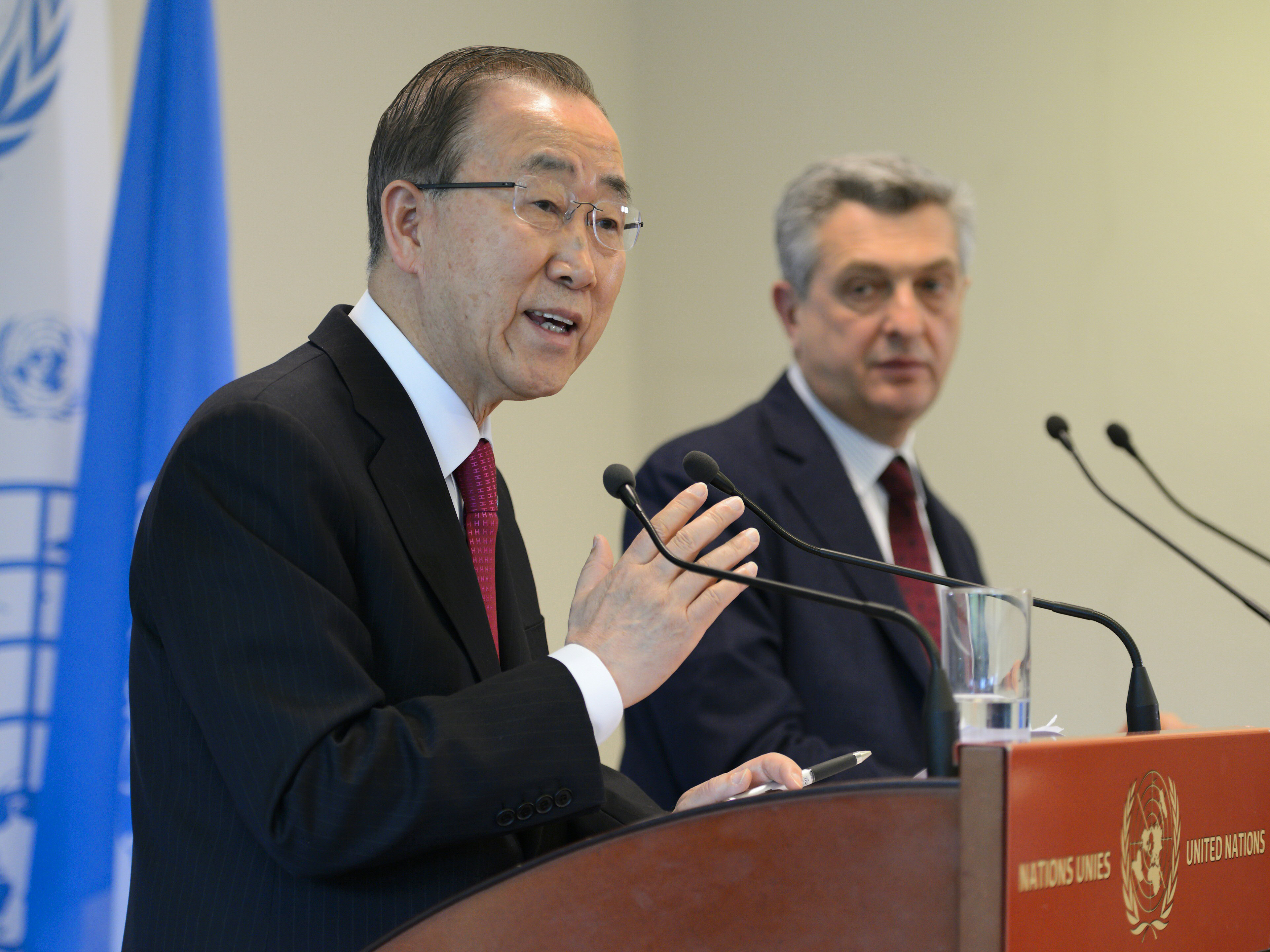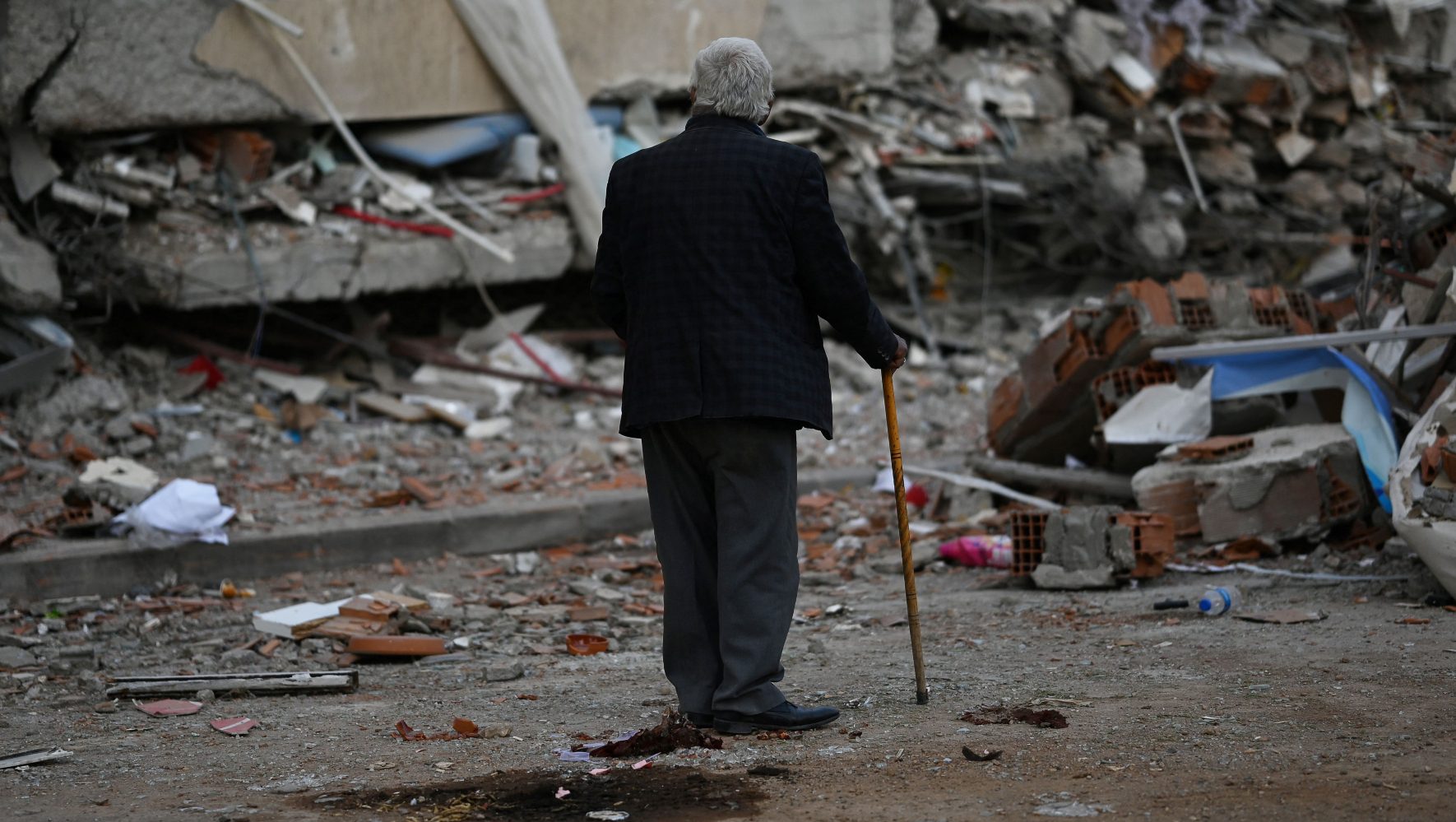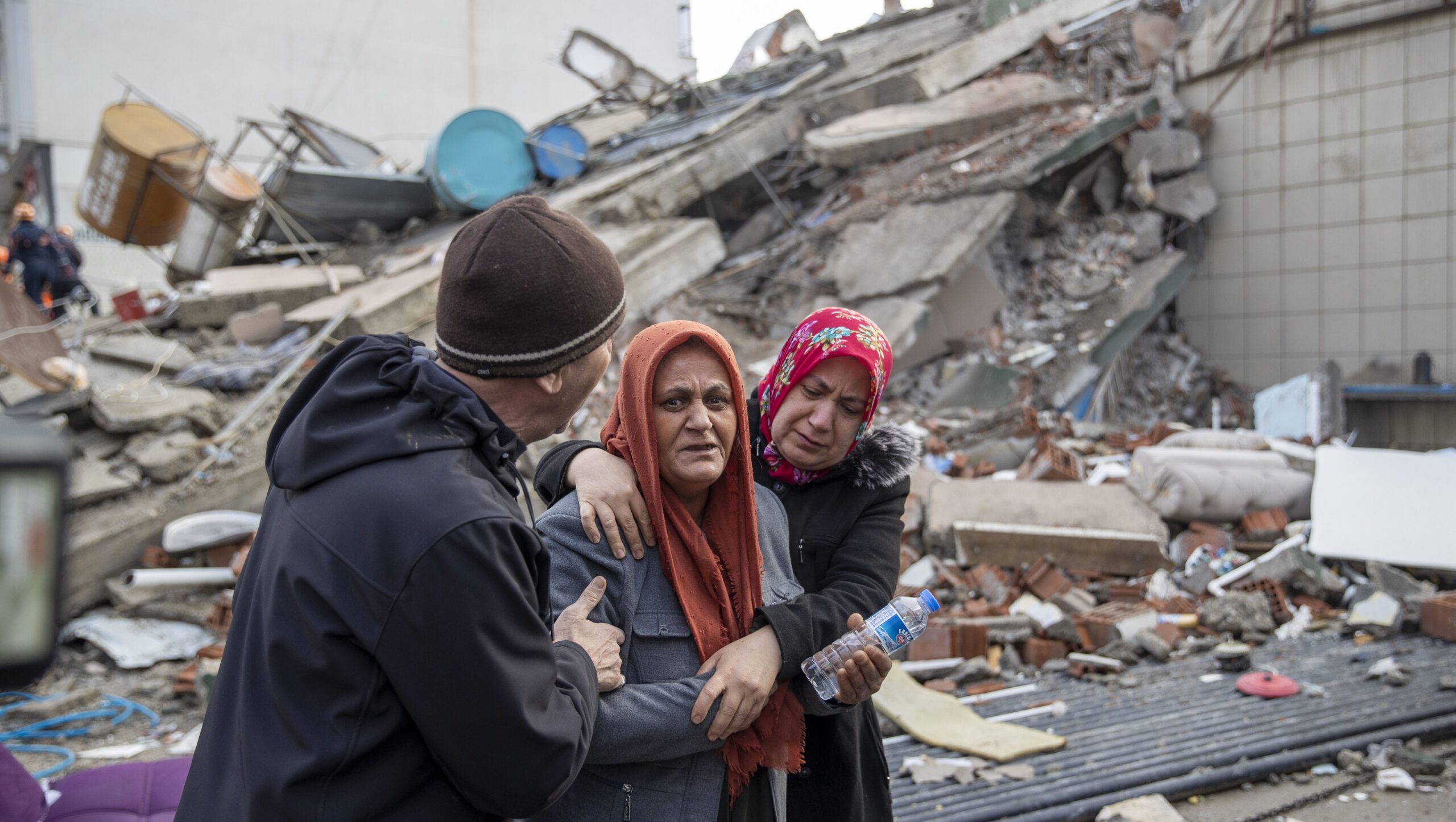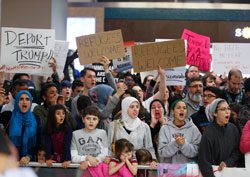Bold Words, but Little Action, at UNHCR Conference on Syrian Refugee Crisis
Mar 31, 2016

UN Secretary General Ban Ki-Moon (L) gestures next to UN High Commissioner for Refugees Filippo Grandi during a press briefing at the UNHCR conference in Geneva aimed at securing concrete pledges from world nations to resettle Syrian refugees, March 30, 2016. HIAS President and CEO Mark Hetfield attended the conference.
(FABRICE COFFRINI/AFP/Getty Images)
“I call on leaders to counter fear mongering with reassurance and to fight inaccurate information with the truth," UN Secretary General Ban Ki Moon said at a high level conference in Geneva on Syrian refugees on March 30, 2016.
The Secretary General opened the Conference with a very personal and poignant story. As a six year old boy displaced during the Korean War, he watched his parents scrounge for food until the UN came to help. He said he now has to make sure the UN is there for the the displaced persons of today, and that the nations who constitute the UN must demonstrate their solidarity with the countries hosting most of the World's 4.8 million Syrian refugees by committing to resettling 10 percent of them.
The countries currently hosting the majority of Syrian asylum seekers, Turkey, Lebanon, Jordan, Iraq and Egypt, each sent high level representatives to join the Secretary General's plea. Turkey, which hosts the largest number of asylum seekers in the world, said the target of pledging 4.8 million resettlement places for Syrians would be a "good start" but insufficient.
Chobani Yogurt founder Hamdi Ulukaya also joined the Secretary General by noting that one-third of the Chobani workforce in the United States are refugees, and that this is "the best thing I have ever done. It is good for the refugees, good for business, and good for the community. A refugee is no longer a refugee when he or she gets a job."
Ulukaya also spoke at length about two sisters who fled Afghanistan via Ukraine. In Ukraine, HIAS helped the sisters, who were separated from their mother while fleeing, and referred them for resettlement out of Ukraine. The two young women were eventually resettled in Idaho and now work for Chobani, where they are well-liked by their American co-workers.
Ulukaya's positive message re-enforced the Secretary General's message that "attempts to demonize [refugees] are not only offensive, they are factually incorrect.”
The government diplomats participating offered supportive words, but few actions to back those words up. While Germany, Austria and Sweden noted the exceptional number of refugees they have taken, and Canada offered to share the plans for its resettlement processing and welcoming "machine" that enabled the new Prime Minister to securely and efficiently welcome 26,000 Syrian-born "new Canadians" in less than six months, the other government pledges of resettlement places were inappropriately ordinary for such extraordinary times. This includes the United States, which made no new pledges of resettlement places, only reiterating its September 2015 pledge to try to take 10,000 Syrian refugees in 2016.
Peter Sutherland, the UN Special Representative on International Migration, went so far as to say that we should all be "ashamed" that the international community of nations 30 years ago was able to provide refuge to over two million Vietnamese refugees, yet today "we are muttering pledges to take in 5,000 or 10,000 refugees."
The last speaker was a Syrian refugee, now living in Switzerland, who delivered a statement on behalf of the non-governmental organizations at the conference, including HIAS. "We have been deeply disappointed by the shocking lack of political and moral leadership demonstrated by the majority of member states,” he said. “This morning we heard the representatives of major refugee-hosting countries appeal to the rest of the world for increased responsibility-sharing. Unfortunately, the pledges made today fall dramatically short of what is needed."
The speaker, who thanked Switzerland for giving him a new start in life, reminded the participating governments that,"states can and should do better.”
The good news is that states have a second chance. It is vital that member states here today go back to their capitals and dig deep to come up with concrete pledges, because on September 19, the Secretary General will host an international migration summit during the UN General Assembly in New York. An international summit will be convened by President Obama the next day, for those countries who have made significant new contributions.
Let us hope that President Obama—and the others there—will have something more inspiring to offer refugees than they did this week.



